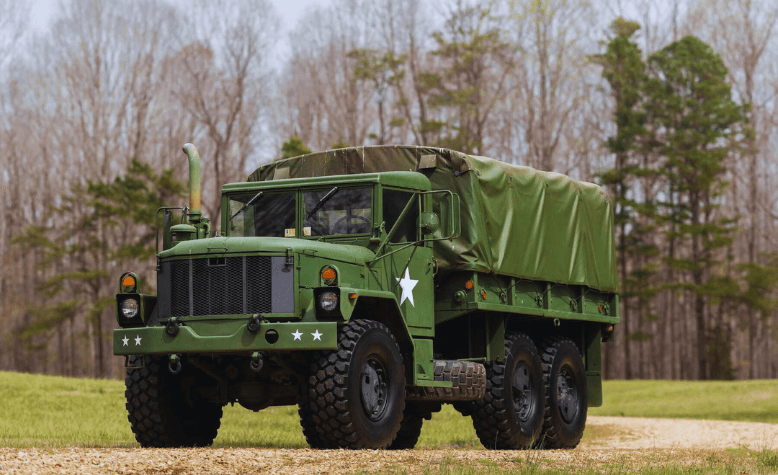
These elite military units are often considered the spearheads of a country’s defense capability. They undergo intensive training and preparation. Special forces, commandos and other specialized units are among the elite military units that undergo rigorous training and preparation. Physical conditioning, specialized skill training, psychological resilience and operational planning are all part of the preparation of elite units. This article explores the different aspects of their preparation and training.
Recruitment and Selection
Selection Criteria
The selection process is very strict for elite military units. Candidates must meet strict standards for physical fitness, mental acuity and psychological stability. The typical criteria are:
- Age restrictions are usually set between 18 and 30.
- No chronic diseases and excellent physical health
- Cognitive abilities and problem solving skills are superior.
- Stress resilience and psychological resilience.
Selection Process
Selection processes often include:
- Tests of Physical Fitness: Measures strength, endurance and agility through running, swimming and obstacle courses.
- Aptitude tests: Evaluation of cognitive abilities, decision making skills, and tacit knowledge.
- Psychological evaluations: Test mental toughness and stress tolerance.
- Background checks and Interviews: Ensure that candidates are motivated and have a good record.
Physical Conditioning
Strength and Endurance training
Elite units require extraordinary physical strength, endurance and agility. Training includes:
- Cardiovascular Exercises: Build cardiovascular endurance by long-distance cycling, swimming and running.
- Strengthening: Resistance training, weightlifting and bodyweight exercises to build muscle strength and endurance.
- Functional fitness: Training which mimics combat scenarios such as lifting heavy objects and climbing.
High-Intensity Training Intervals (HIIT)
These sessions include: These sessions include:
- Combine sprints with bodyweight exercises.
- Circuit training with minimal recovery periods.
- Short bursts high-intensity activities are used in combat drills.
Flexibility and mobility
To avoid injury and maintain agility, flexibility and mobility are vital. Training includes:
- Stretching Routines: Dynamic stretching and static stretching routines.
- Yoga and Pilates : Programs that improve flexibility, core strength, and balance.
Specialized Skills Training
Weapons and Combat Training
Elite units are required to be skilled in many weapons and combat methods, including
- Firearms Training : Handling and maintenance of firearms and rifles.
- Close Quarters Combat: Hand to hand combat, knife fights, and the use of improvised weaponry.
- Explosives & Demolitions : Handling and deployment of explosives safely for demolition and breaching purposes.
Tactical Training
The success of a mission depends on the tactical proficiency of its members. Training includes:
- Small-Unit Tactics : Maneuvers in small groups, flanking tactics, and ambush techniques.
- Urban Warfare : Techniques of fighting in urban environments including clearing buildings and room-toroom combat.
- Reconnaissance & Surveillance : gathering intelligence, conducting surveillance and stealth movements.
Navigation and Survival Skills
Survival skills are vital for working in hostile environments. Training includes:
- Land navigation: Use of maps, compasses and GPS to navigate.
- Survival Techniques : Finding water, building shelters and obtaining food in the wilderness.
- Medical and First Aid Training: Provide emergency medical care including battlefield medicine, trauma care and other forms of care.
Psychological preparation
Mental Toughness & Resilience
Elite soldiers must have a high level of psychological resilience. Training is focused on:
- Stress Innoculation: Simulated scenarios of combat to acclimate troops to high-stress situations.
- Mindfulness & Mental Conditioning : Techniques for improving focus, reducing anxiety and enhancing decision making under pressure.
- Cohesion and Team Building: Exercises for building trust, communication and teamwork.
Situational awareness and decision making
Elite units must make quick, effective decisions in dynamic environments. Training includes:
- Scenario Based Drills : Realistic scenarios requiring rapid assessment and decisions.
- War Games & Simulations : Computer-based simulations and live simulations for strategic and tactical training.
- Cognitive training: Enhances memory, attention and situational awareness by specialized exercises.
Plan and execute your operational activities
Mission Planning
For a mission to be successful, detailed planning is vital. The training includes:
- Debriefings of Missions: A detailed review of the mission objectives, strategy, and possible contingencies.
- Contingency Planning : Develop and practice backup plans for different scenarios.
- Support and Logistics: Ensure that all the necessary supplies, equipment, and support is in place to complete the mission.
Real-World Exercises
Experience in the field is valuable. Training often involves:
- Field training exercises (FTX) : extended missions that simulate real world operations
- Joint training with Other Units Coordinating with other military forces and branches.
- Live Fire Drills : Practice combat techniques using live ammunition in order to simulate actual combat conditions.
Continuous Improvement
Once initial preparation is completed, training does not end. Elite units continue to refine their skills by:
- Advanced Certifications and Courses: Specialized courses in areas like sniper training, parachuting and diving.
- Regular refresher courses: Keep your skills sharp with the latest technology and tactics.
- Lessons learned: Analyzing previous missions to identify improvement areas and incorporating these lessons into future training.
The conclusion
Elite military units undergo a thorough and comprehensive training, which ensures that they are prepared for even the most difficult missions. Every aspect of the training is designed to create highly trained, versatile and resilient warriors. Training methods are constantly evolving to ensure that elite units stay at the forefront of military capability and prepared to meet any threat with precision.







